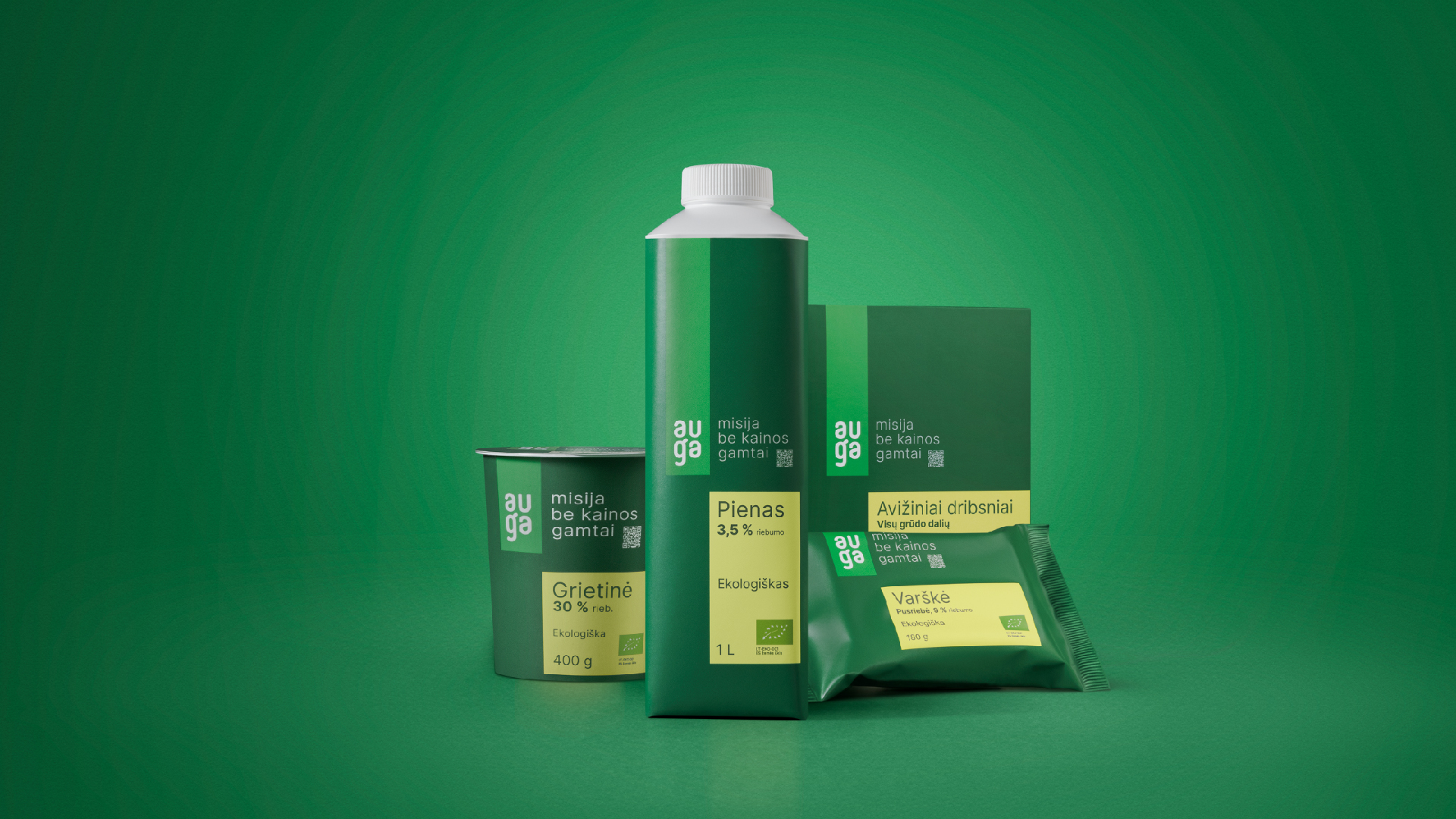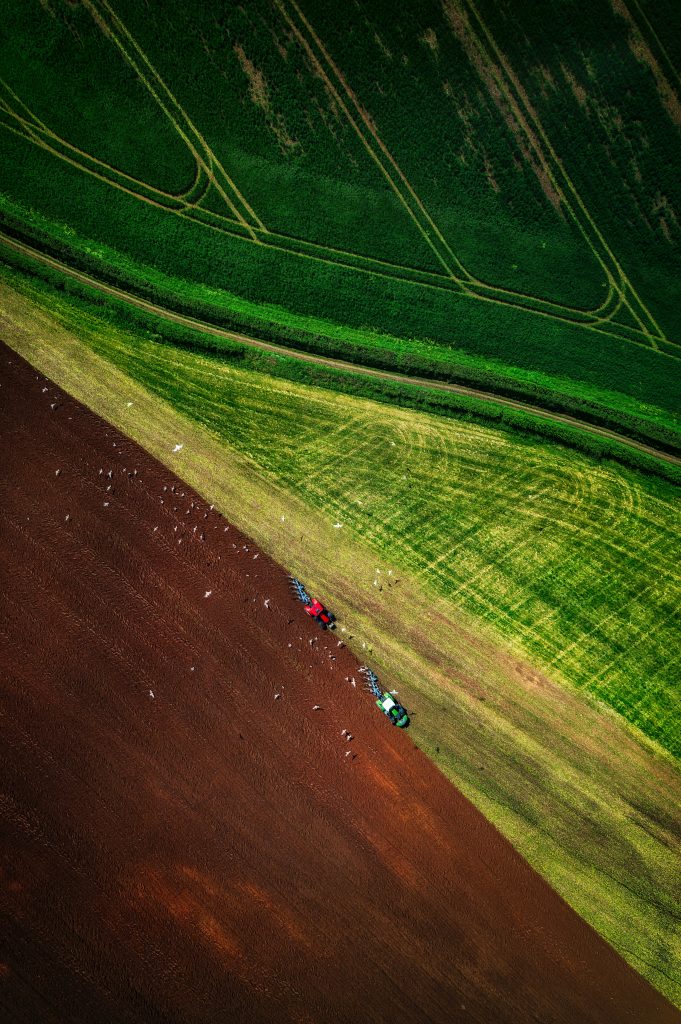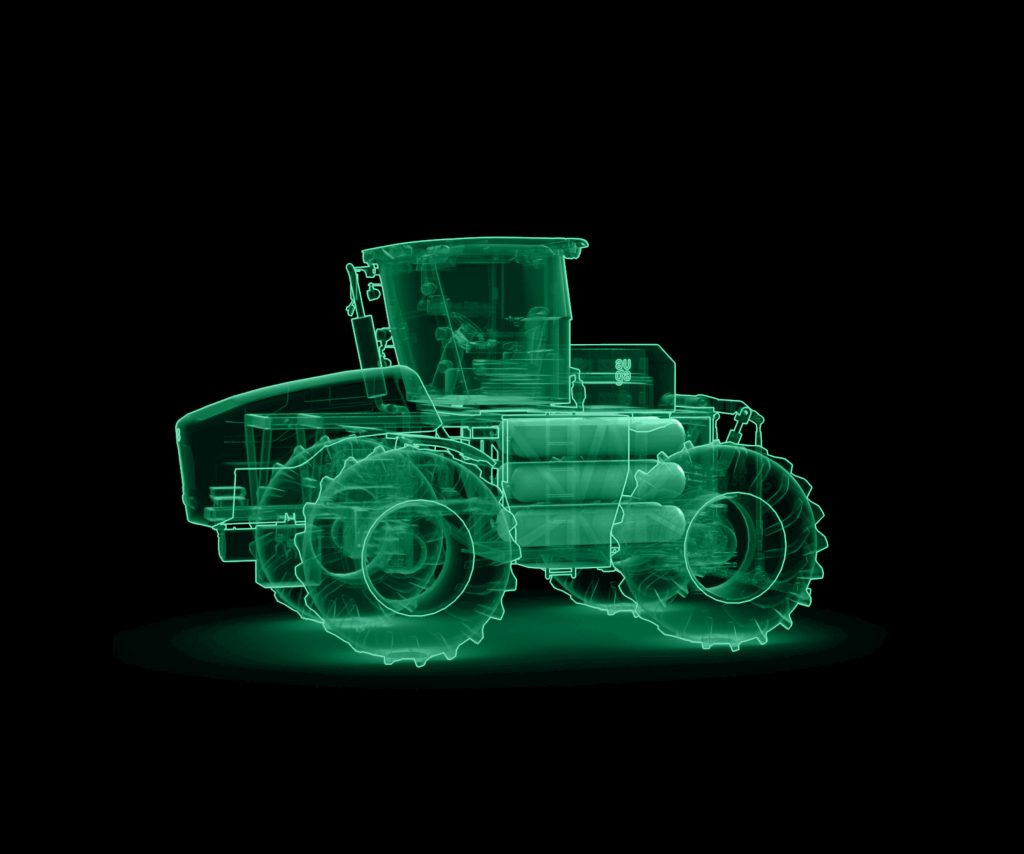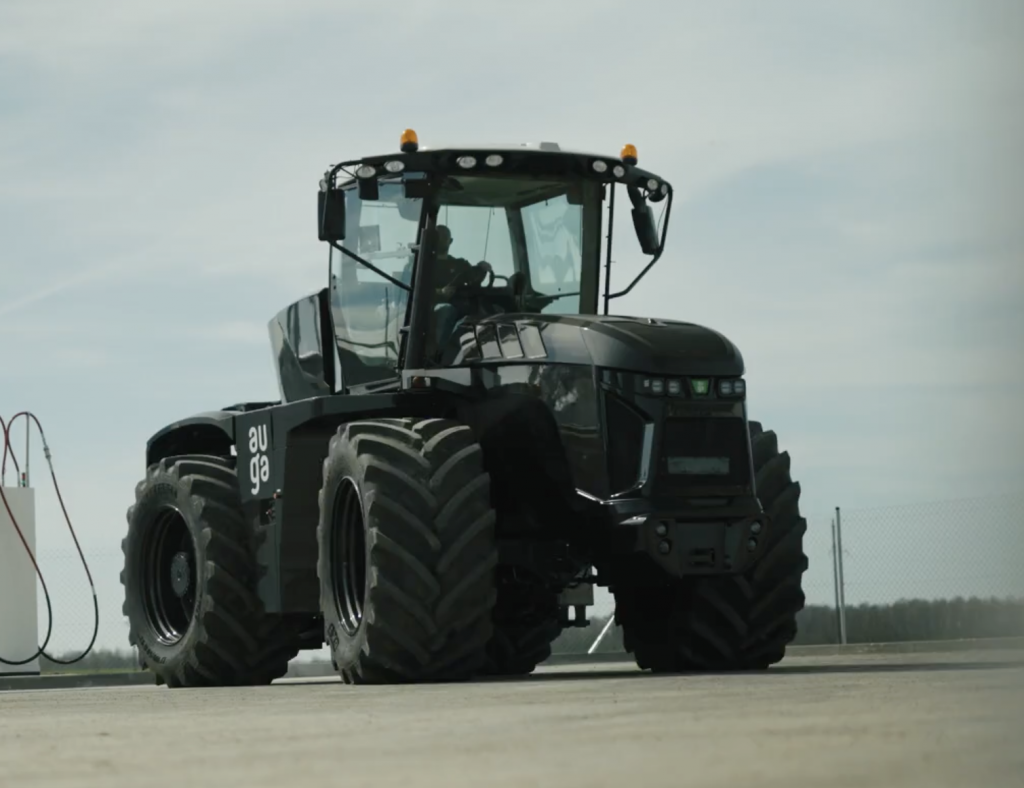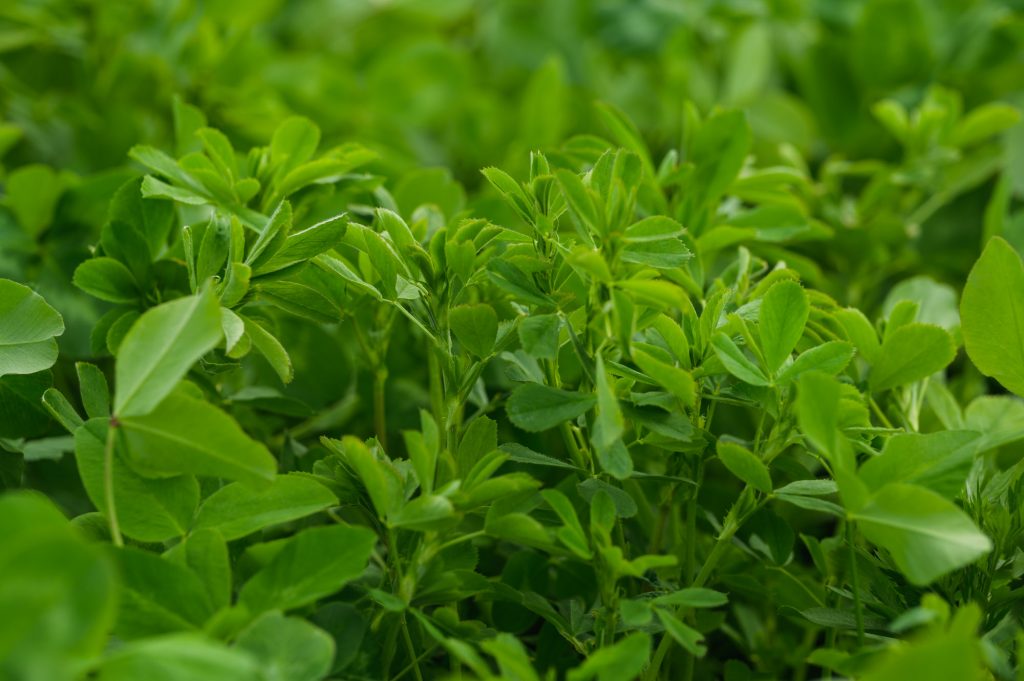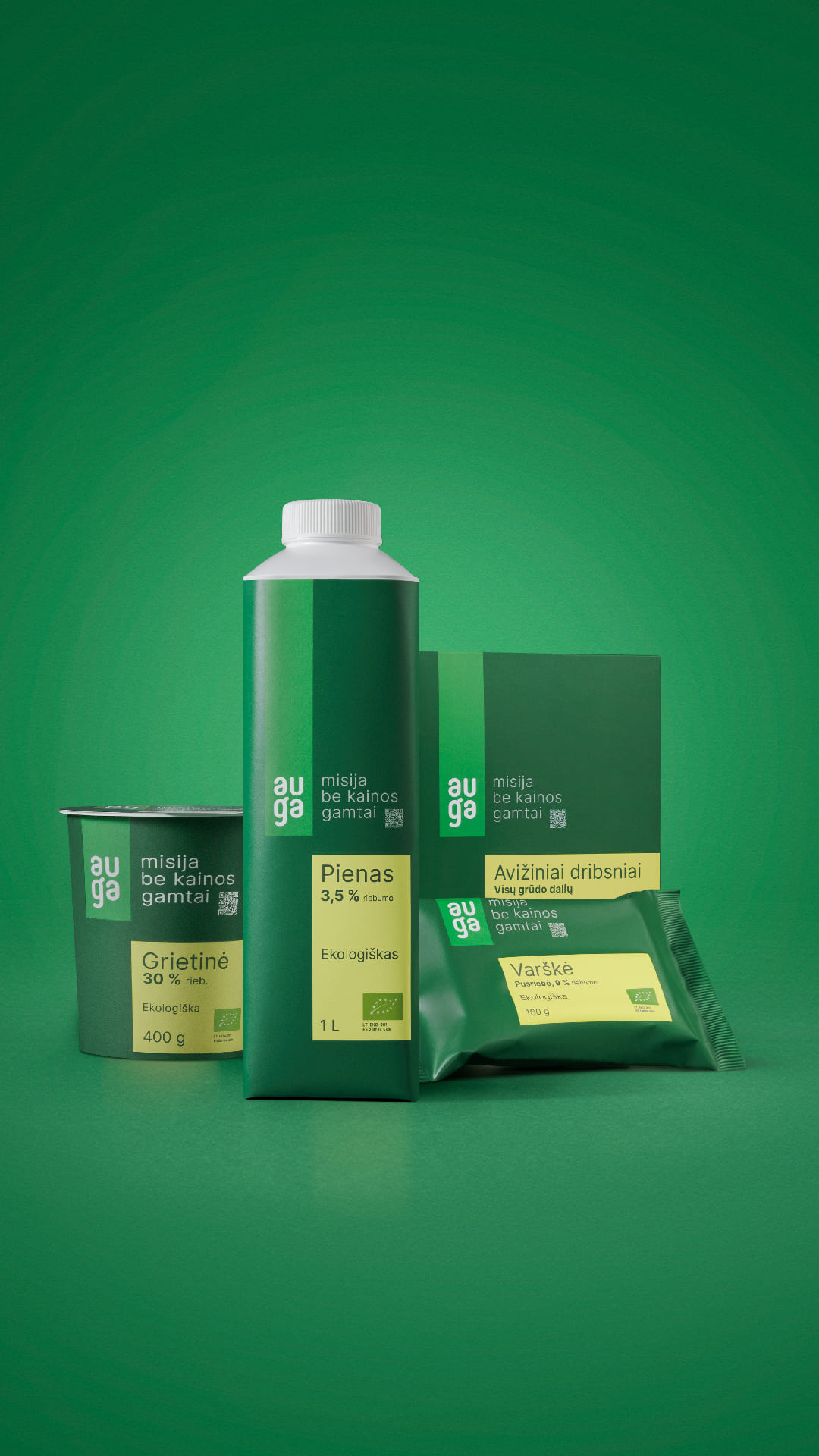
AUGA mission no cost to nature
It’s our aim to reduce the environmental impact of the food production chain.
First, by reducing climate change emissions from agriculture, which account for the largest share of food emissions. We are developing and deploying unique technologies that change agriculture. So farmers can work more sustainably and consumers can choose products every day that are not only organic but also more environmentally friendly and grown in Lithuania. We aim to become climate neutral by 2030. (Read more about our goals and progress here).
Today, agriculture is responsible for more than 20% of climate change emissions worldwide. The use of fossil fuels on farms, the digestive processes of livestock, and emissions from soils in crop production are the biggest sources of emissions during food production and can only be mitigated with new technologies. Many emission-reducing solutions now exist in the energy, road transport and industrial sectors. For agriculture, there are hardly any such technologies that are viable in practice. That’s why we have started to develop such solutions ourselves.
While others talk, we do
In 2021, we created a prototype of the AUGA M1, the world’s first biomethane and electric tractor for professional use. Why biomethane? It’s one of the greenest fuel sources, offsetting more emissions per unit of energy in the production and use cycle than it itself emits. And most importantly, we can produce it on our farms from plant remains and cow manure. In other words, our cow gas is the fuel for our tractors. In Lithuania, we’ve developed and patented new technologies that make it possible to use this fuel in practice in a specially designed tractor.
In early 2023, we delivered a production version of the AUGA M1 and the first production batch of such tractors. We wanted the tractors, which were designed by Lithuanian engineers, to be assembled here in our country. This tractor can save 114.26 tonnes of CO2e emissions per year compared to a tractor powered by fossil fuel. For comparison: during the busy season, the AUGA M1 will save as much emissions in 1 month as the average car using conventional fuel emits in 5-6 years. We rarely think about how much fuel is consumed and how much emissions are produced by agricultural machinery. The ability to move away from fossil fuels on farms is a technological breakthrough that allows us to move towards significant emission reductions in the production of all AUGA products. Three tractors from the first production batch are being tested in AUGA fields.
A quarter of the emissions from our operations come from the digestive processes of cattle. That is why we have been developing specialised feed technology for some time that will reduce emissions in this area. We have carried out tests on the technology, the results of which and their validity have been evaluated by scientists at the Veterinary Academy of the Lithuanian University of Health Sciences. In 2023, they confirmed that the specialized feed technology we have developed allows us to increase milk yield without affecting milk quality. Additionally, it helps to reduce methane emissions per liter of raw milk from cows’ digestive processes by 32%. The prototype technology is being further developed for large-scale application on farms.
Just talking about sustainability won’t fill you up
While some important technologies are still being developed and deployed, today we already have many methods in place to grow food more sustainably. Since 2017, AUGA farms have been working according to the EU organic productions standard, which ensures organic products, reduced environmental impact and animal welfare. We do not use chemical fertilisers, pesticides or other chemical protection products. And we go beyond what the standards require. Consider for example:
-
Min-till technologies
When using such technologies, only the surface layer of the soil is cultivated. That protects the soil from erosion, helping to preserve the soil’s fertile layer and the microorganisms it contains.
-
Green energy
Our farms and all AUGA group companies use only certified green electricity. Part of the energy from renewable sources is produced by the group itself internally.
-
Regenerative crop-rotation
According to the crop rotation plan, at least 4 different crops are grown in 7 years. This improves the soil and is good for biodiversity. Annually increasing areas of perennial grasses and leguminous crops makes it possible to reduce the need for organic fertilisers and emissions in crop production.
-
More sustainable animal husbandry
In order to ensure the well-being of animals, cows on AUGA farms graze freely in pasture during the warm season. Cow feed is based on perennial leguminous grasses, which is a more sustainable, less emission-generating feed, compared to commonly used grains, corn silage or soybeans. Livestock waste is used as an organic fertiliser, in a closed-loop organic farming model. In the future, much of the manure will be used for biomethane production.
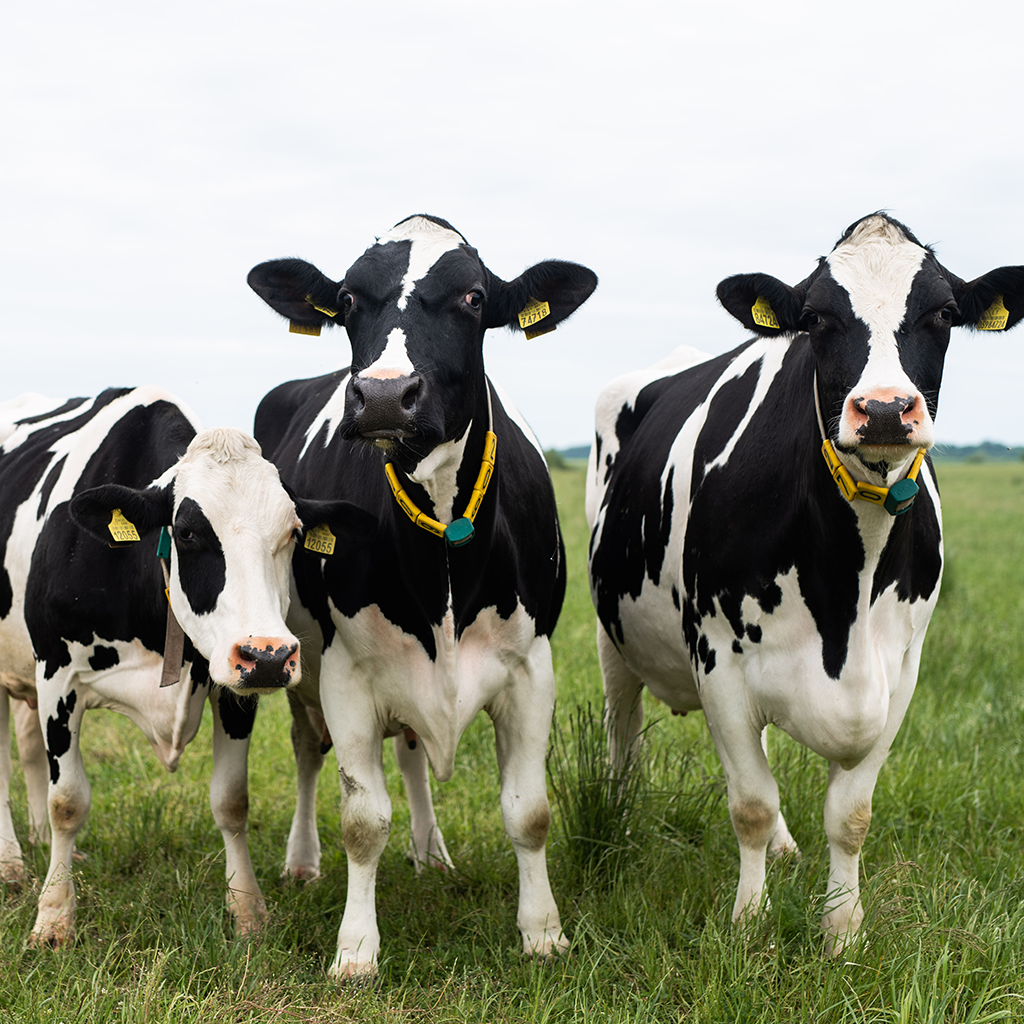
Sustainability is best talked about with your mouth full
AUGA products in green packaging labelled “mission no cost to nature” are produced from organic raw materials grown in Lithuania, on AUGA farms, where more sustainable production practices are applied and new technologies that reduce environmental impact are used. In terms of emissions, the products in this line are more sustainable than other AUGA products and the average products on the market in their categories. To ensure that sustainability is not an empty word, you can contribute to the mission of reducing climate change by the choices you make every day. Enjoy!
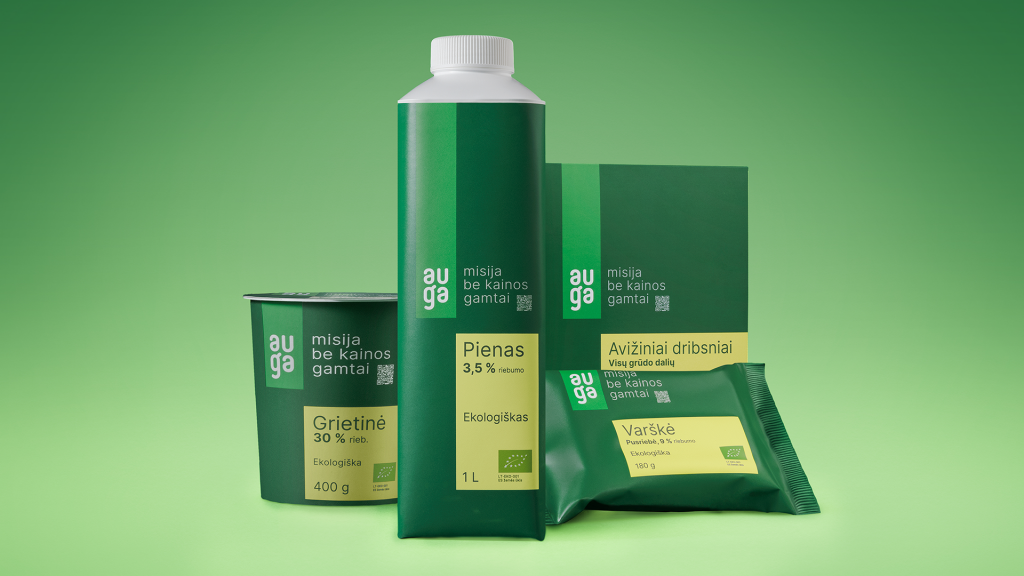
Products
-
More sustainable organic dairy products and eggs
Milk
3,5 % fat, organic, 1 l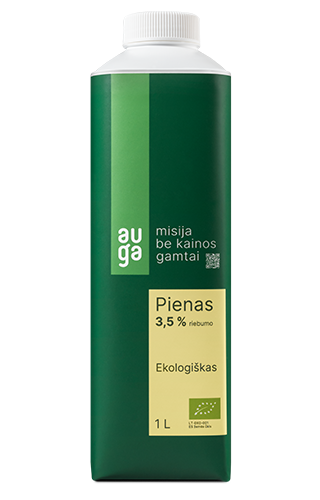
Made from milk collected from AUGA organic farms in Lithuania
Find out moreMilk
2,5 % fat, organic, 1 l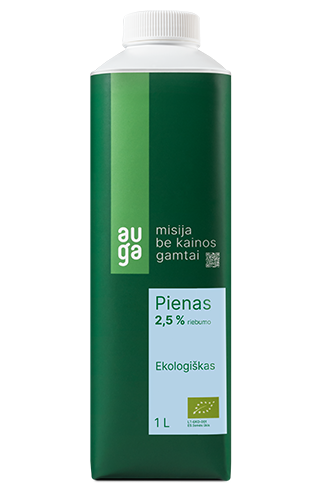
Made from milk collected from AUGA organic farms in Lithuania
Find out moreMilk UHT
3,5 % fat, organic, 1 l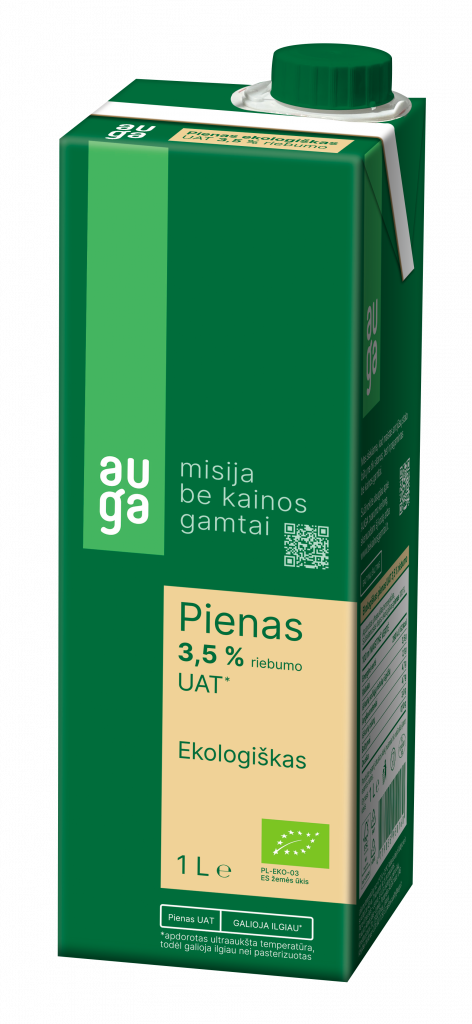
Made from milk collected from AUGA organic farms in Lithuania.
Find out moreMilk UHT
2,5 % fat, lactose-free, organic, 1 l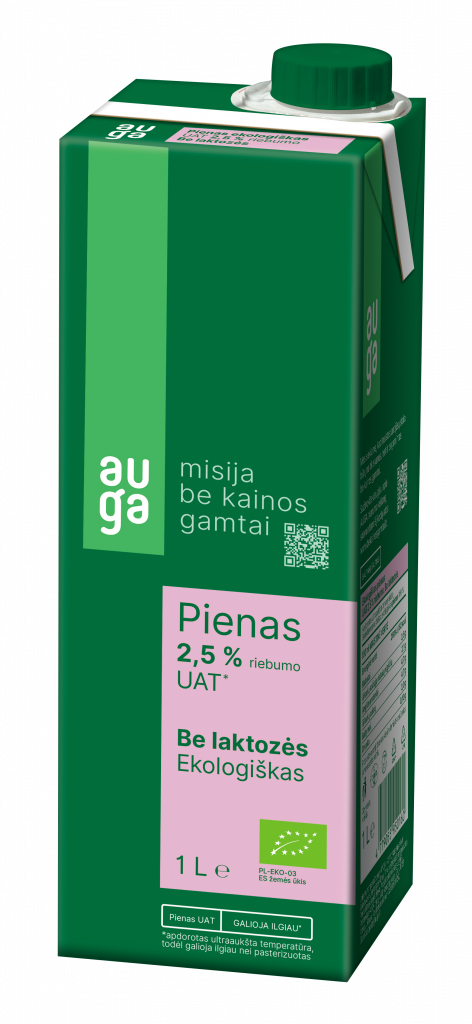
Made from milk collected from AUGA organic farms in Lithuania
Find out moreKefir
2,5 % fat, organic, 1 l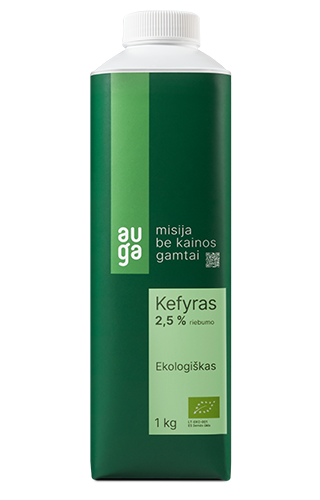
Made from milk collected from AUGA organic farms in Lithuania
Find out moreSour cream
30 % fat, organic, 400 g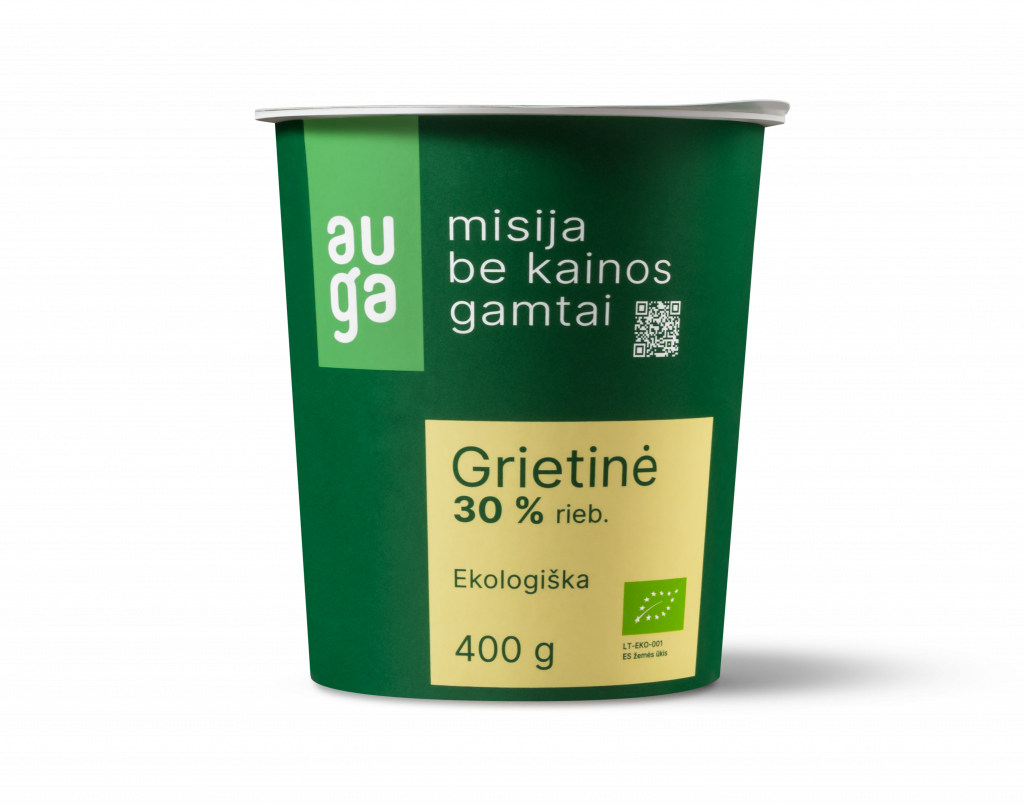
Made from milk collected from AUGA organic farms in Lithuania
Find out moreButter
82 % fat, organic, 180 g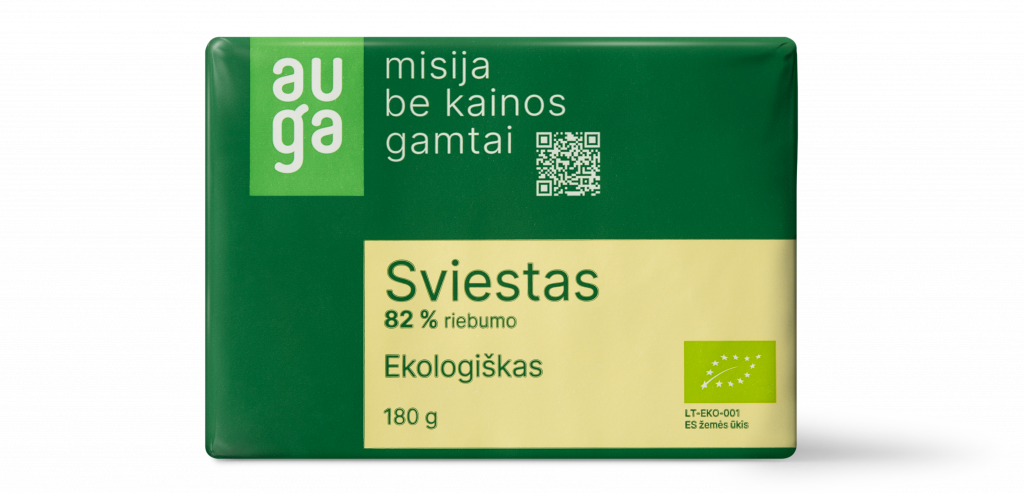
Made from milk collected from AUGA organic farms in Lithuania.
Find out moreCurd
9 % fat, organic, 180 g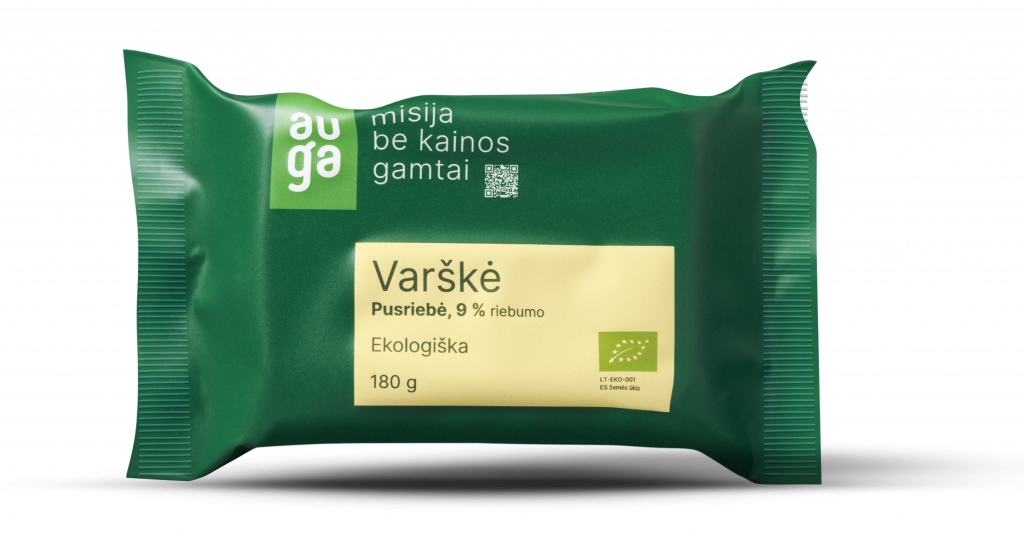
Made from milk collected from AUGA organic farms in Lithuania
Find out moreCurd
9 % fat, organic, 500 g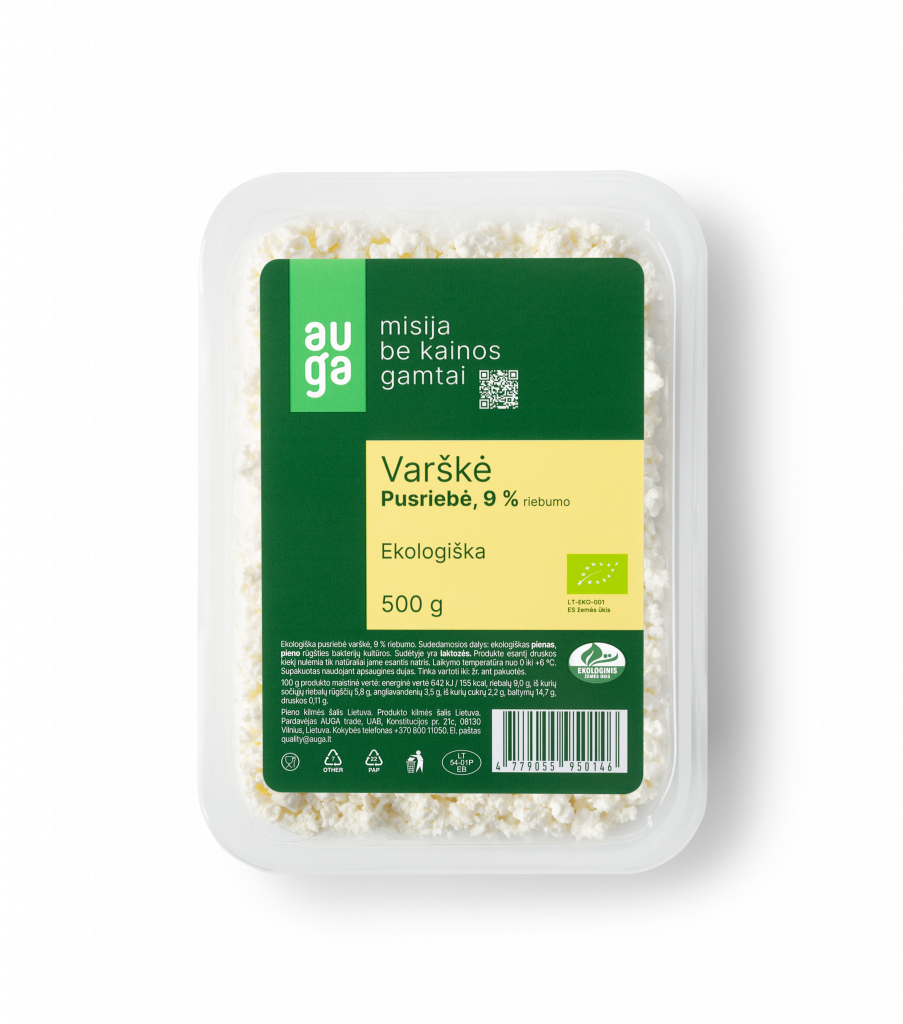
Made from milk collected from AUGA organic farms in Lithuania
Find out moreChicken eggs
Organic brown, M/L size, 10 units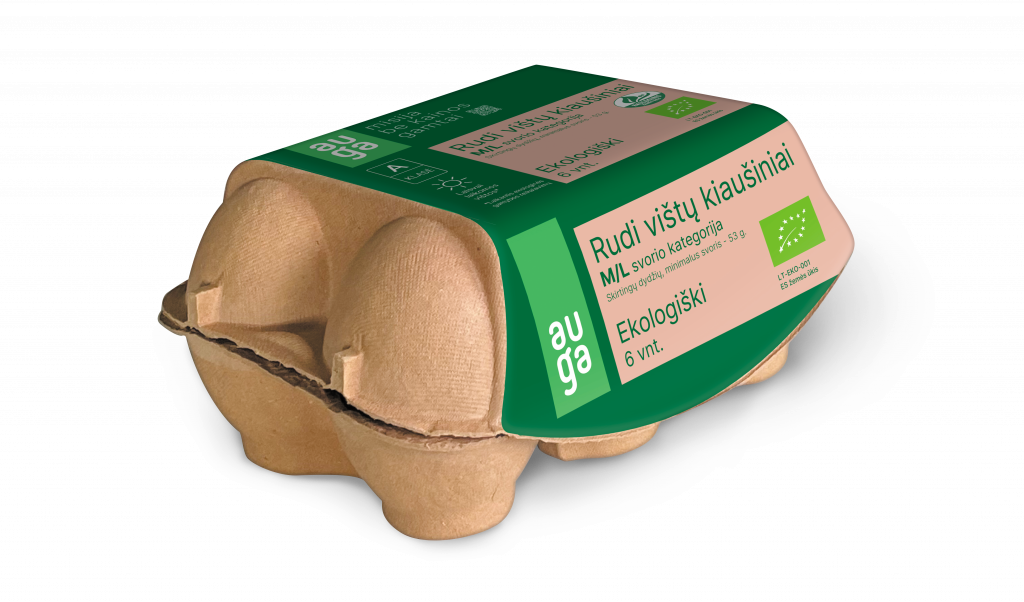
Eggs from free-range hens from AUGA organic farms in Lithuania.
Find out more -
Organic yogurts
Natural yogurt
4,3% fat, organic, 350 g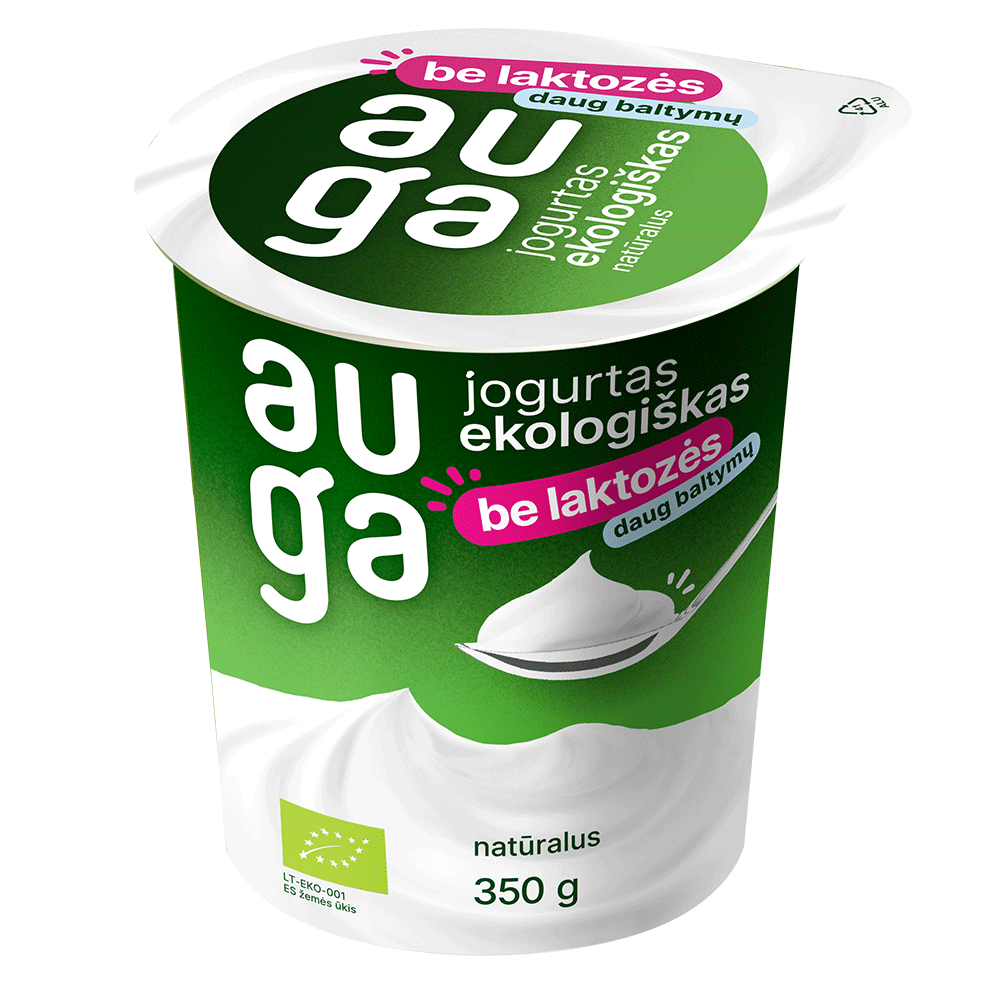
Made from milk collected from AUGA organic farms in Lithuania.
Find out moreNatural yogurt
4,3% fat, organic, 125 g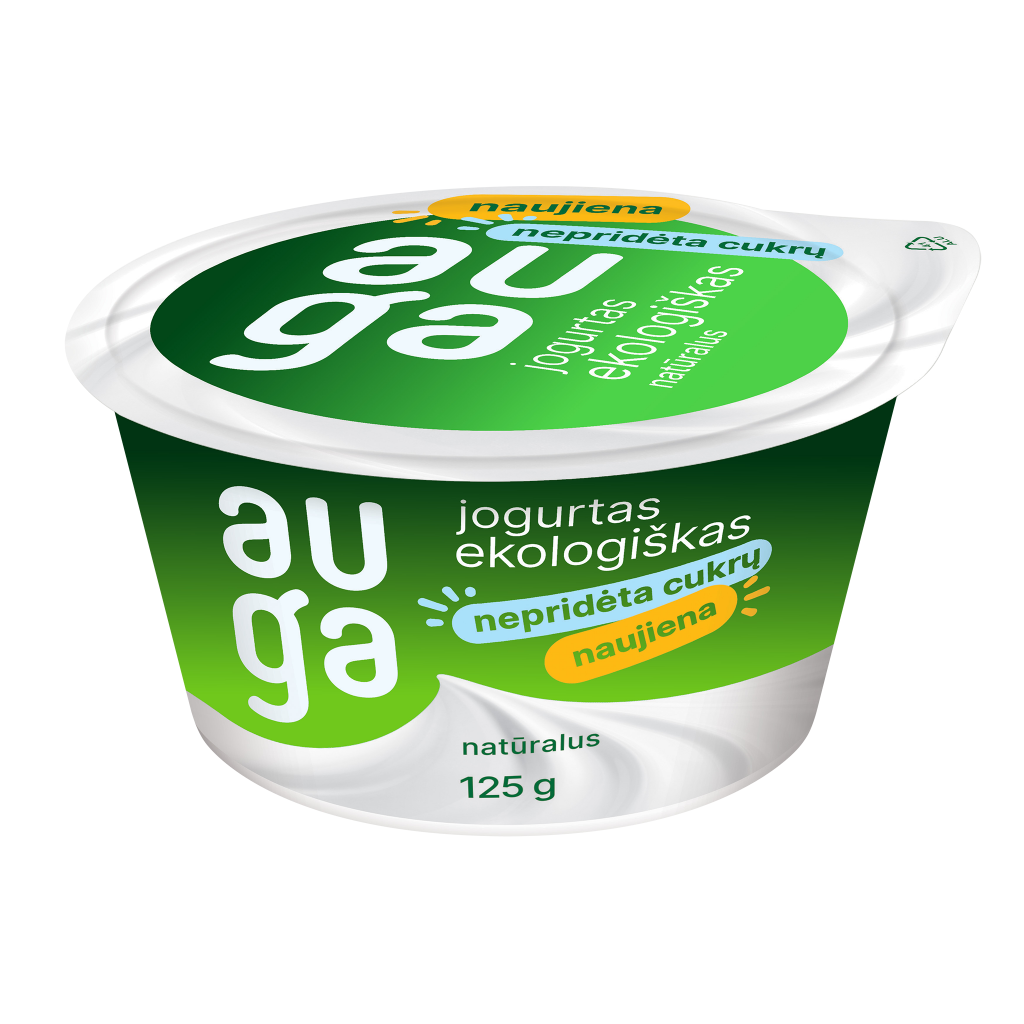
Made from milk collected from AUGA organic farms in Lithuania.
Find out moreYogurt with blueberries and raspberries
3,5 % fat, organic, 350 g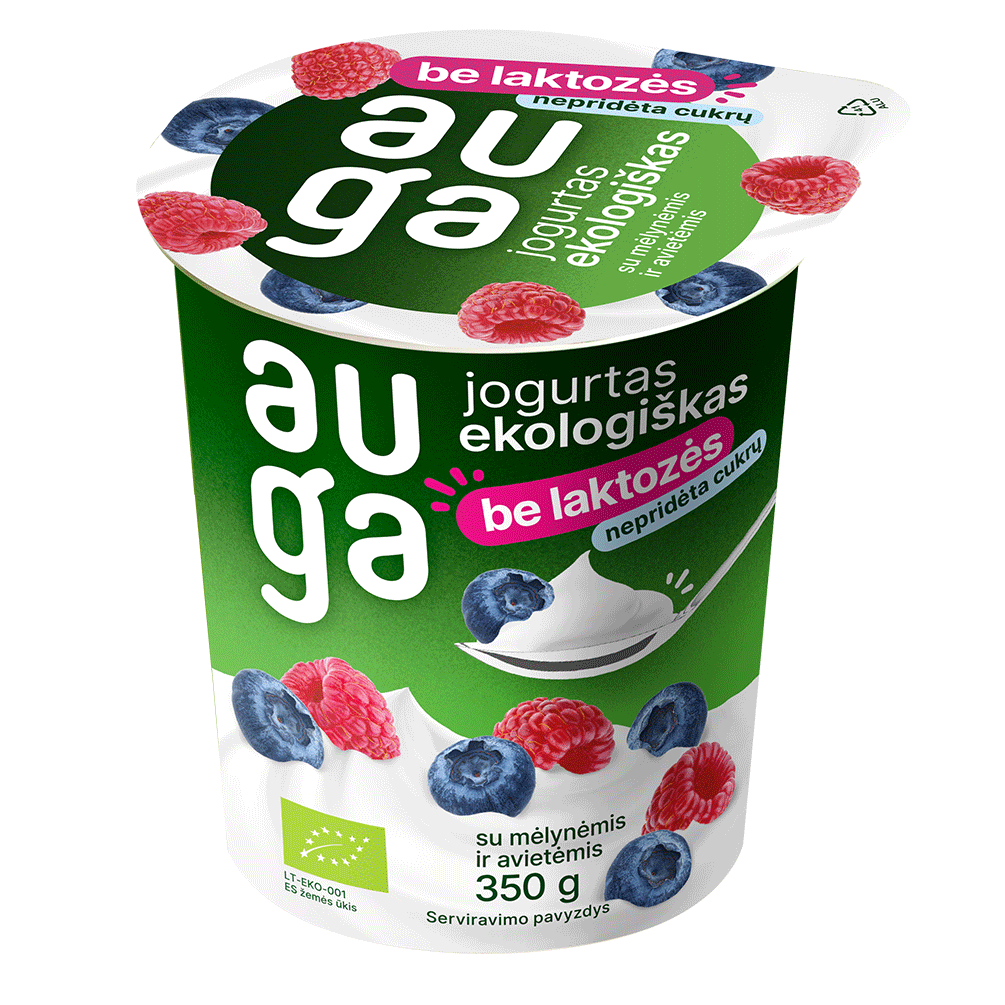
Made from milk collected from AUGA organic farms in Lithuania.
Find out moreYogurt with blueberries and raspberries
3,5 % fat, organic, 125 g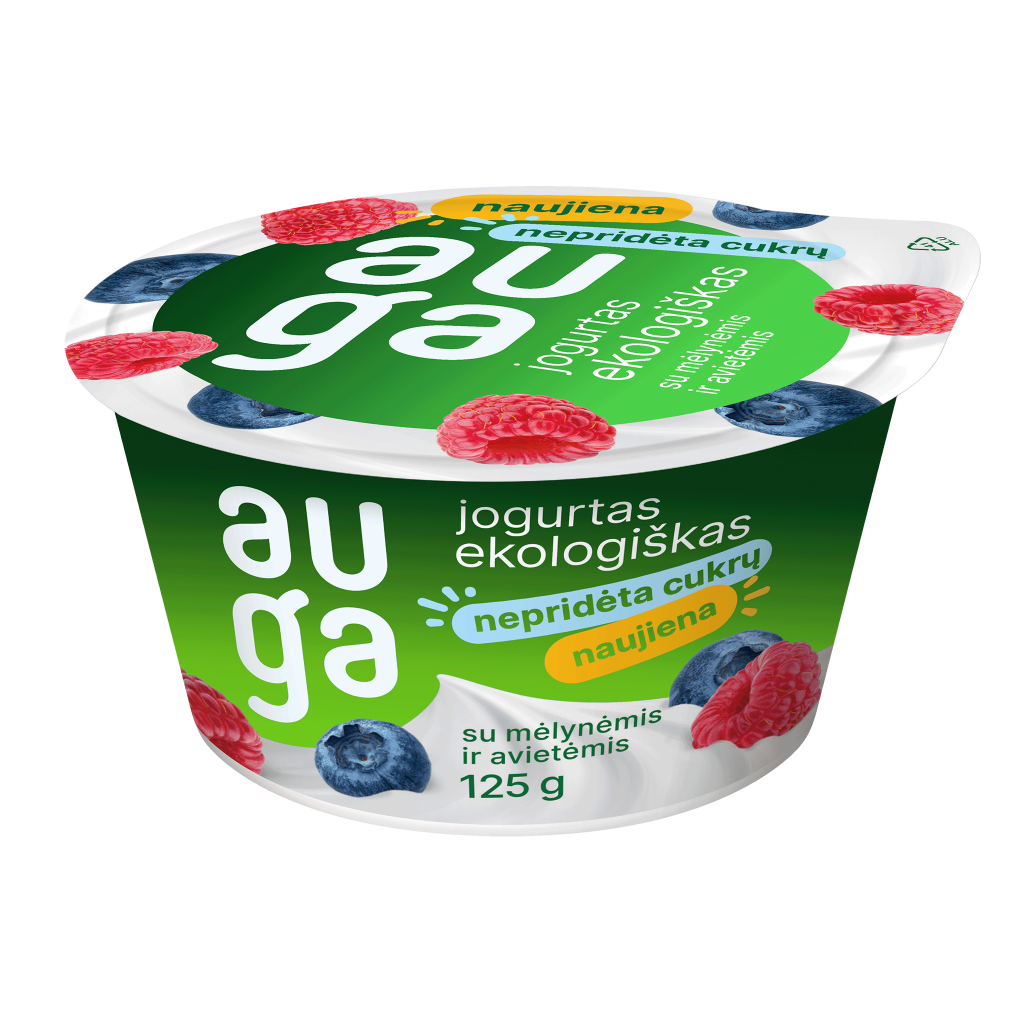
Made from milk collected from AUGA organic farms in Lithuania.
Find out moreYogurt with with apricots and strawberries
3,5 % fat, organic, 350 g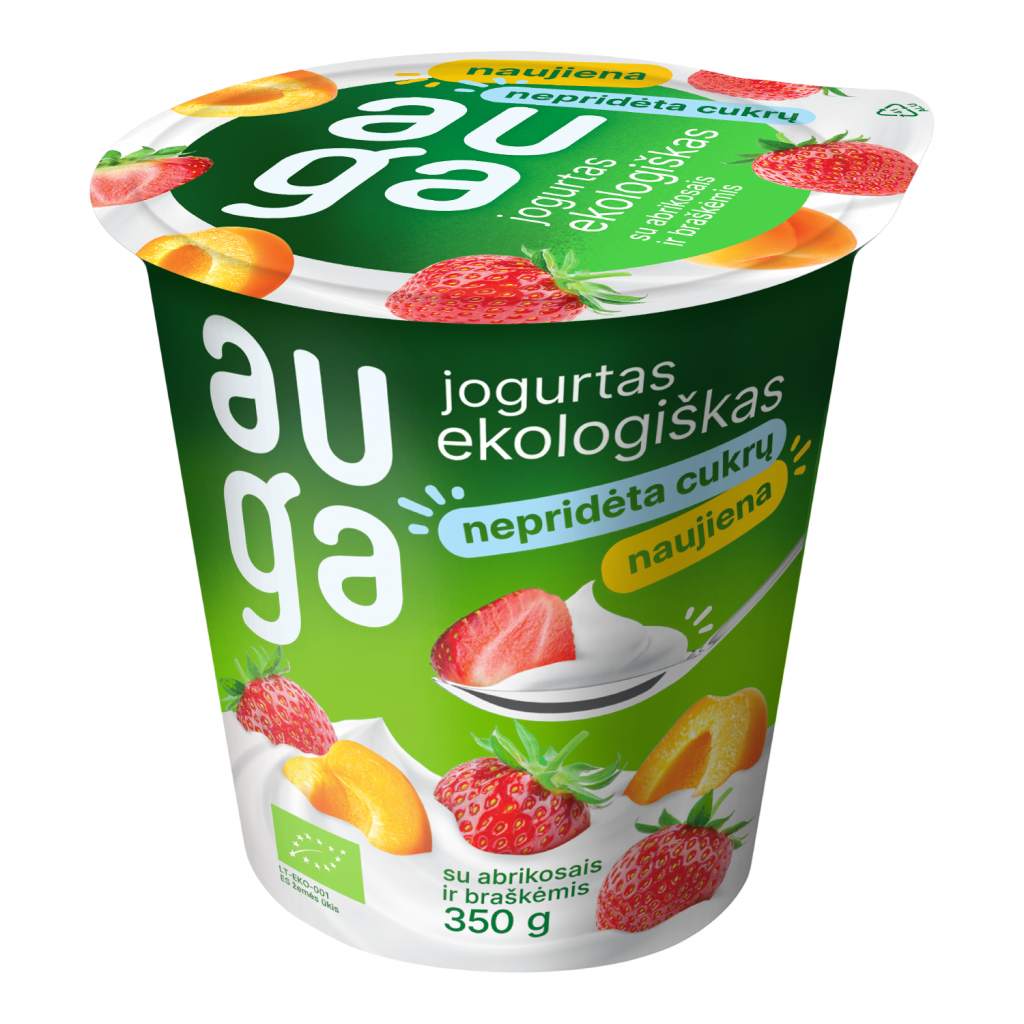
Made from milk collected from AUGA organic farms in Lithuania.
Find out moreYogurt with with apricots and strawberries
3,5 % fat, organic, 125 g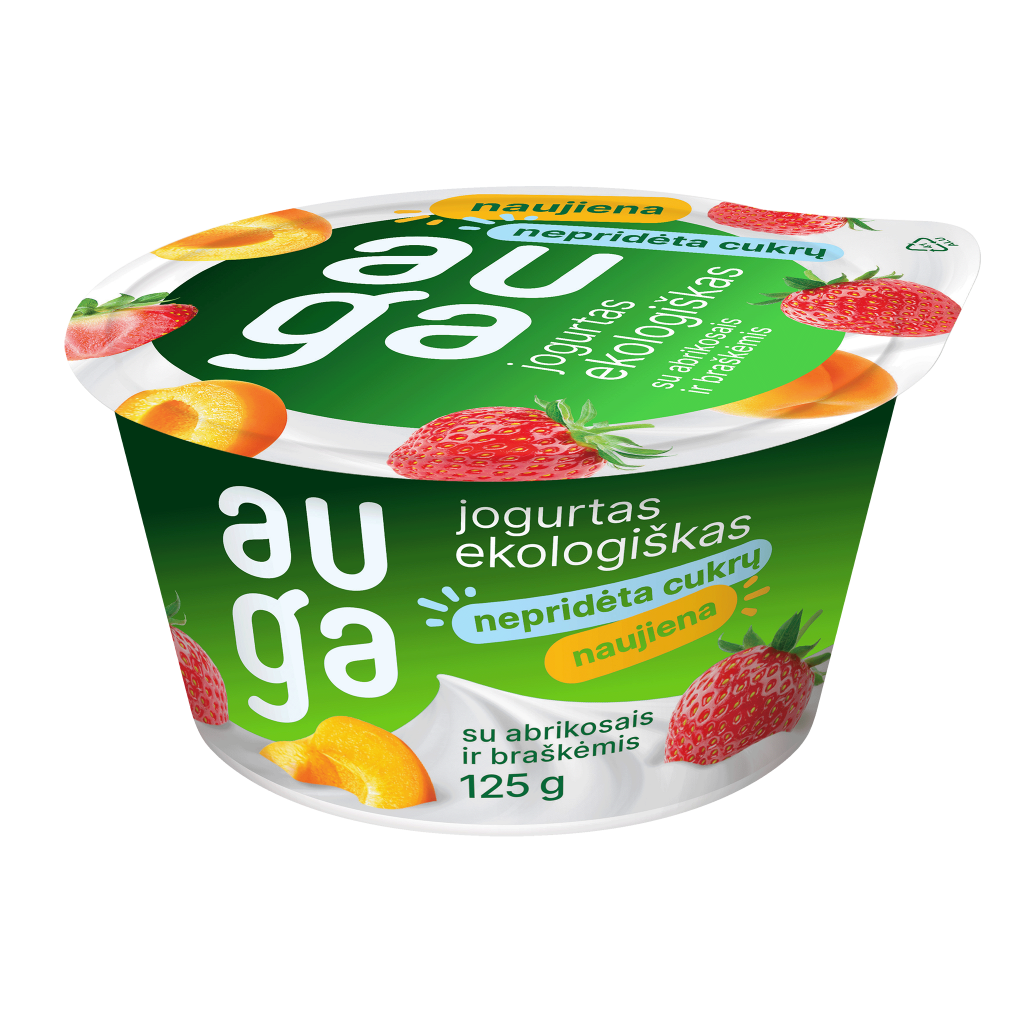
Made from milk collected from AUGA organic farms in Lithuania.
Find out more -
More sustainable organic oat flakes
Oat flakes
Wholegrain, Organic, 500 g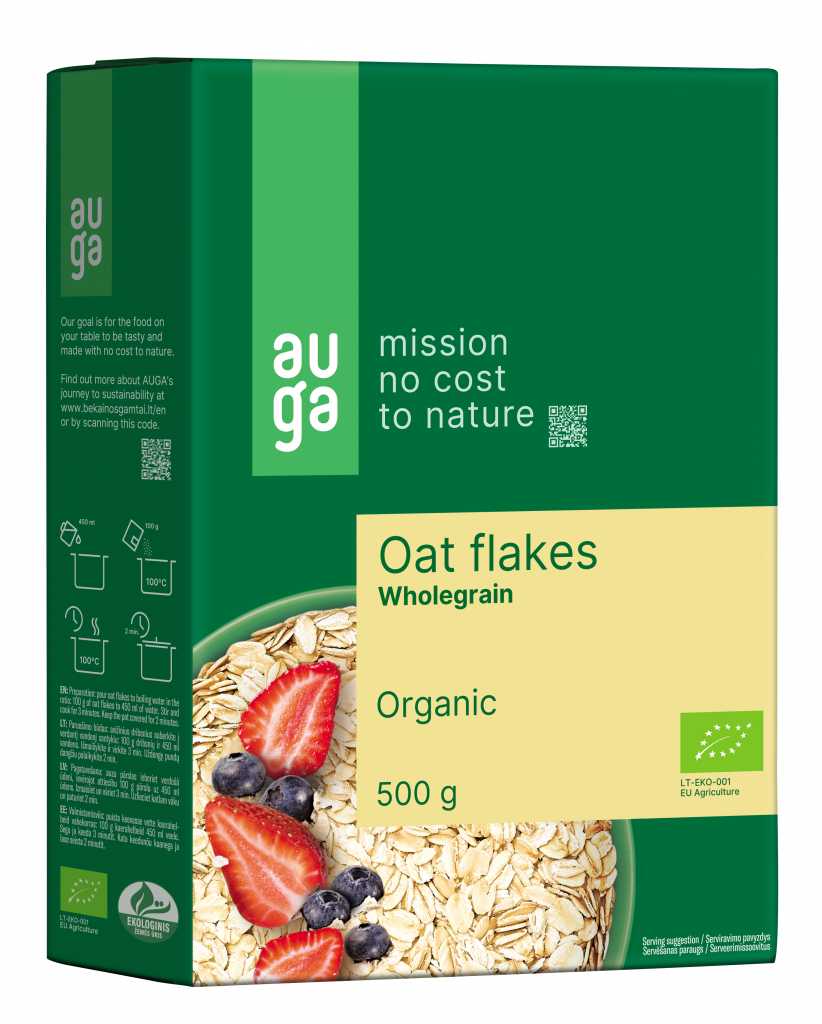
Made from oats grown in AUGA organic farms in Lithuania.
Find out moreOat flakes
Instant, wholegrain, Organic, 500 g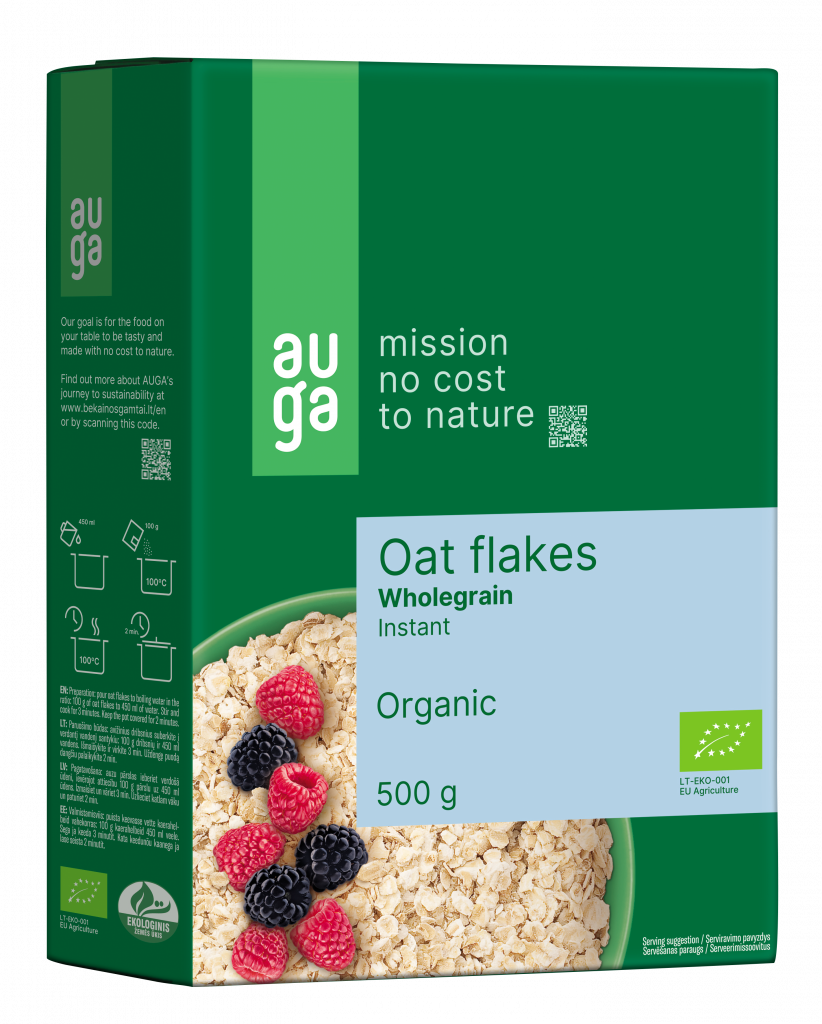
Made from oats grown in AUGA organic farms in Lithuania.
Find out more -
Organic oatmeal
Oatmeal porridge with apples and cinnamon
whole grain, instant, organic, 60 g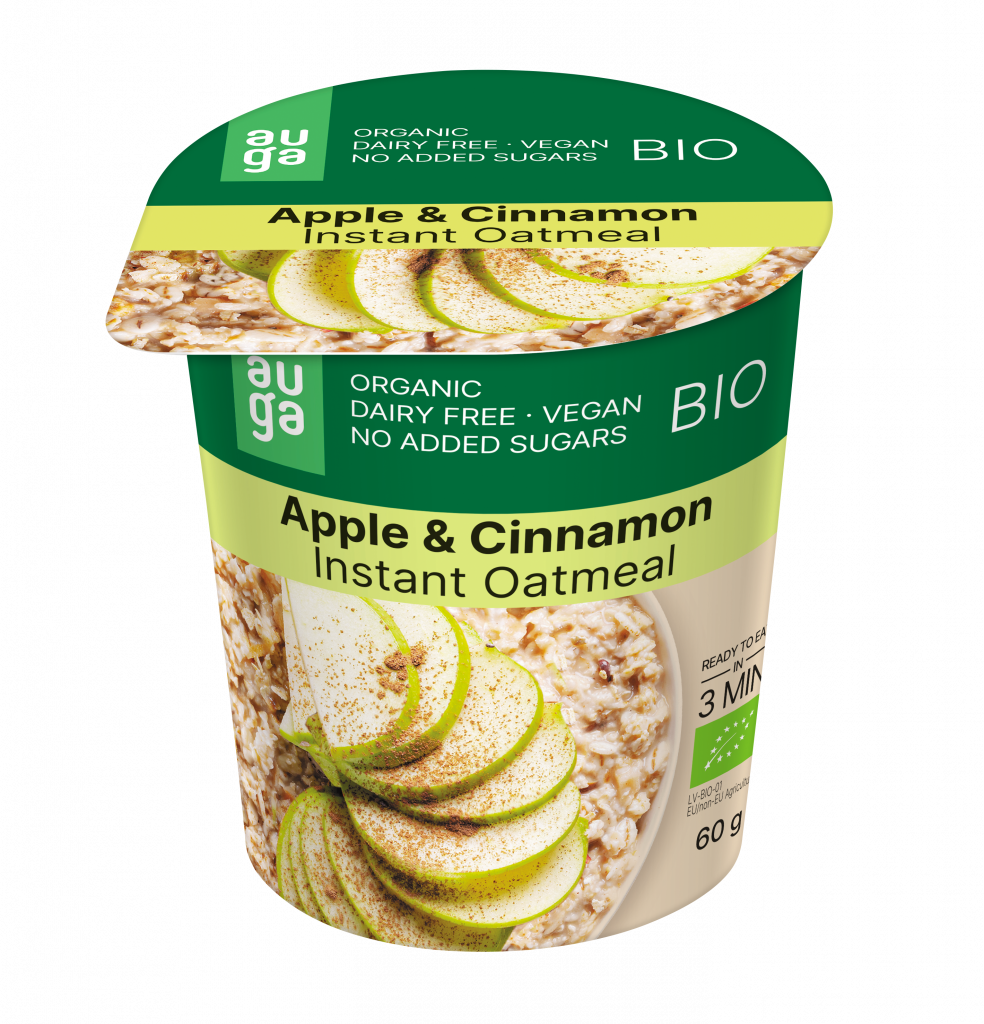
Made from organic oats grown in AUGA fields.
Find out moreOatmeal porridge with apples and raspberries
whole grain, instant, organic, 60 g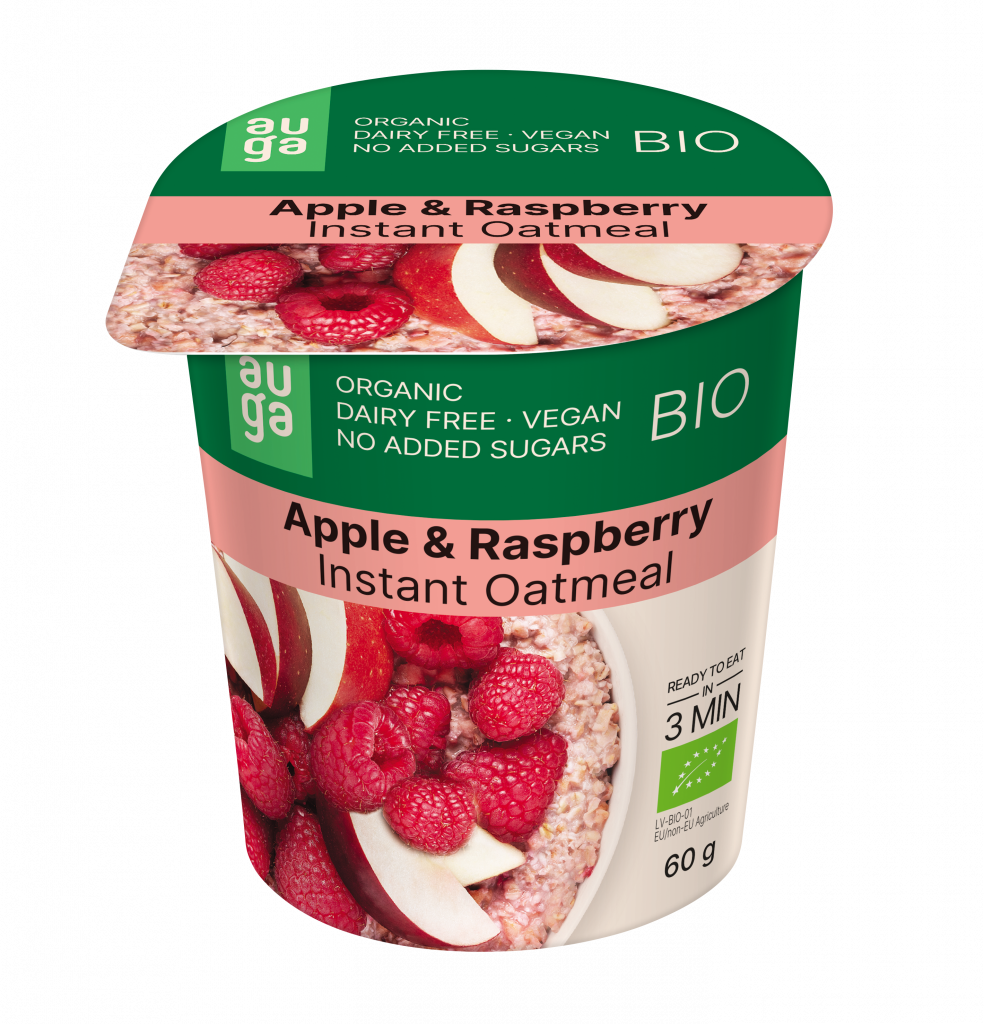
Made from organic oats grown in AUGA fields.
Find out moreOatmeal porridge with apricots and banana
whole grain, instant, organic, 60 g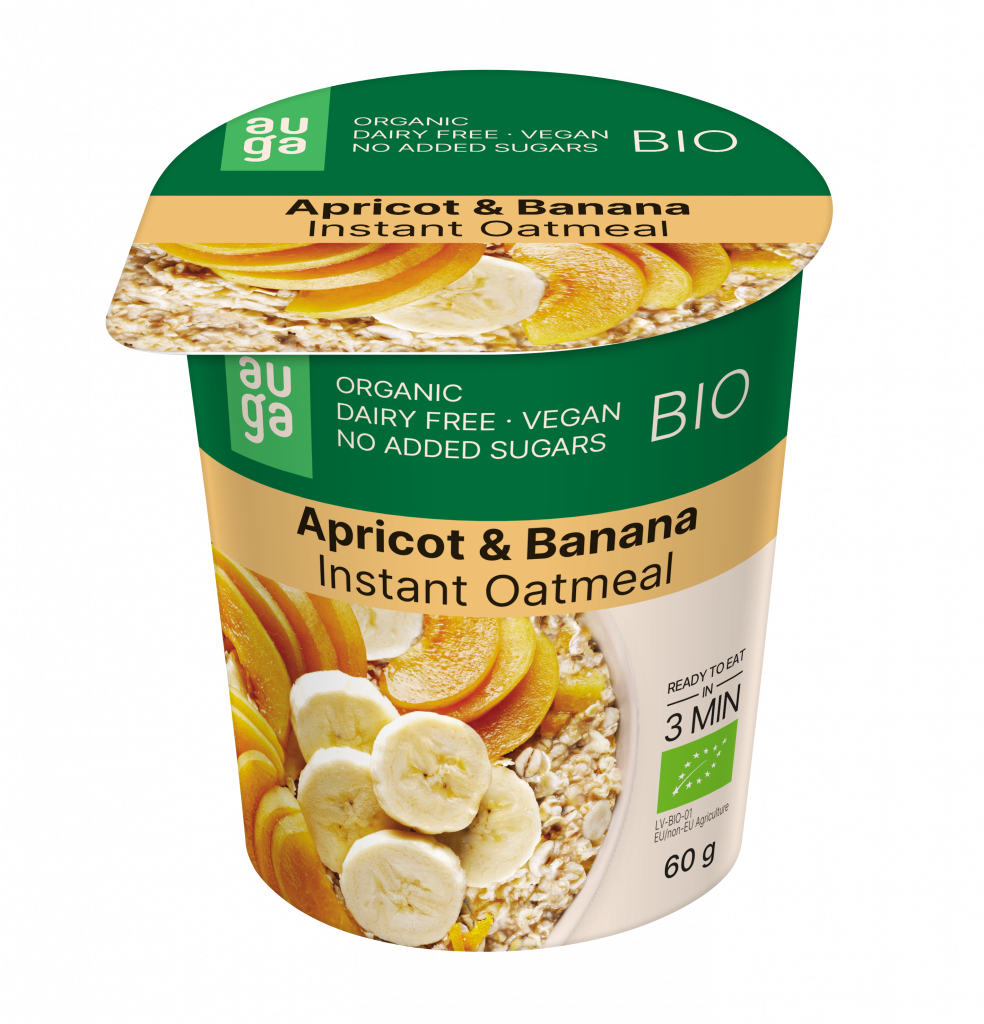
Made from organic oats grown in AUGA fields.
Find out moreOatmeal porridge with banana and strawberries
whole grain, instant, organic, 60 g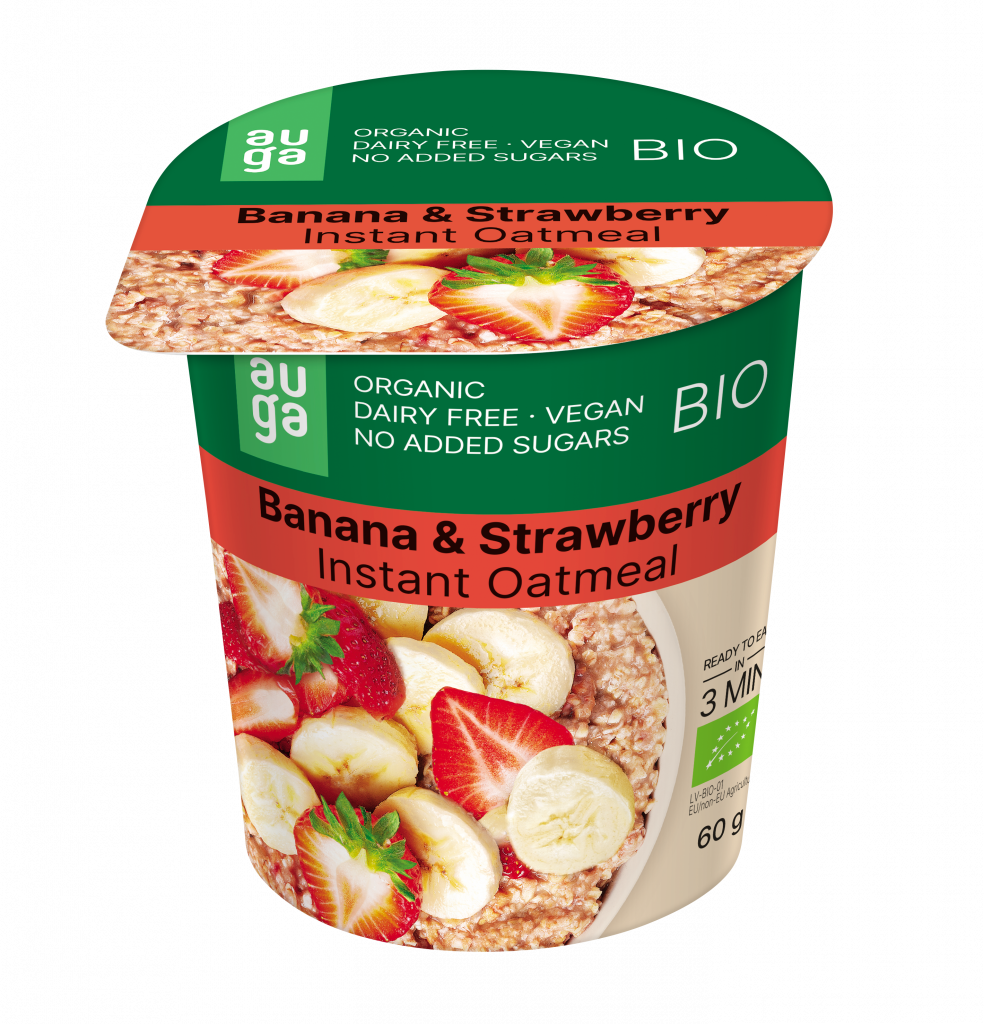
Made from organic oats grown in AUGA fields.
Find out moreOatmeal porridge with wild berries
whole grain, instant, organic, 60 g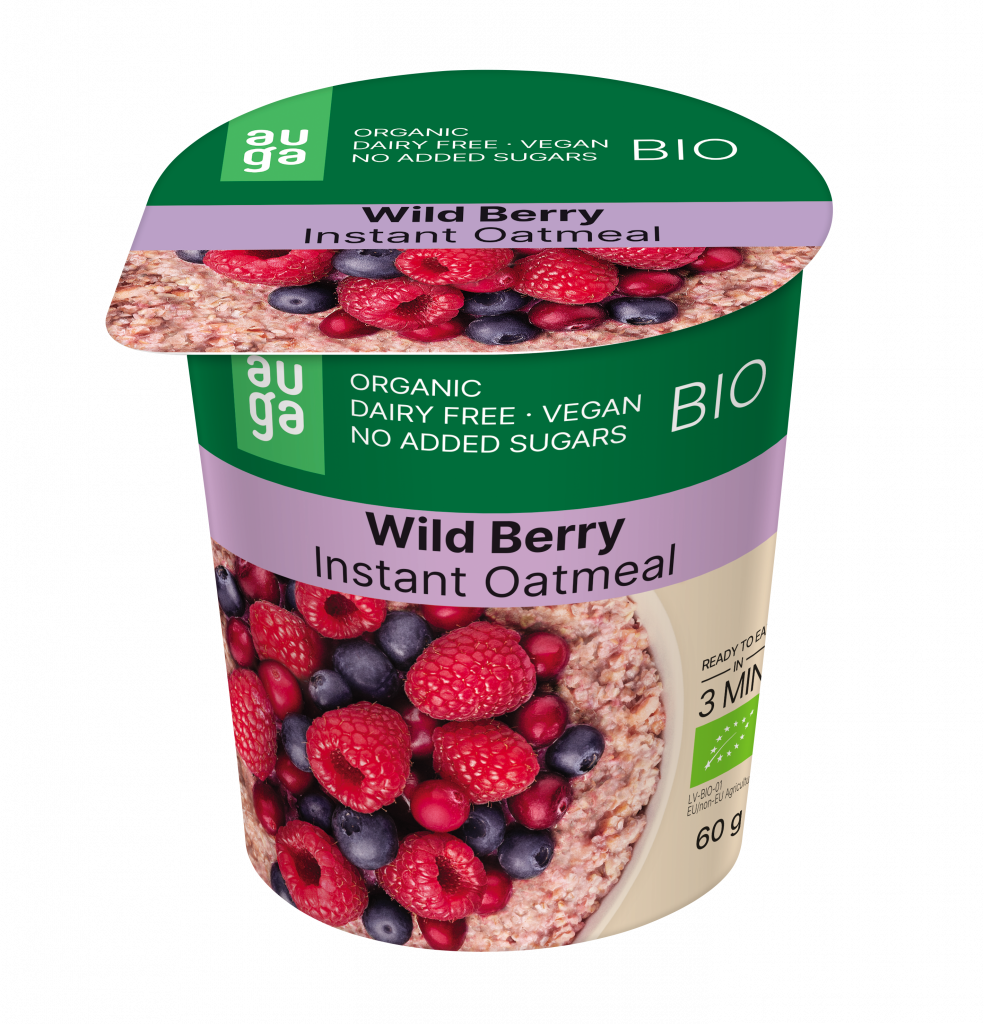
Made from organic oats grown in AUGA fields.
Find out more -
More sustainable organic vegetables
Potatoes
organic, 1 kg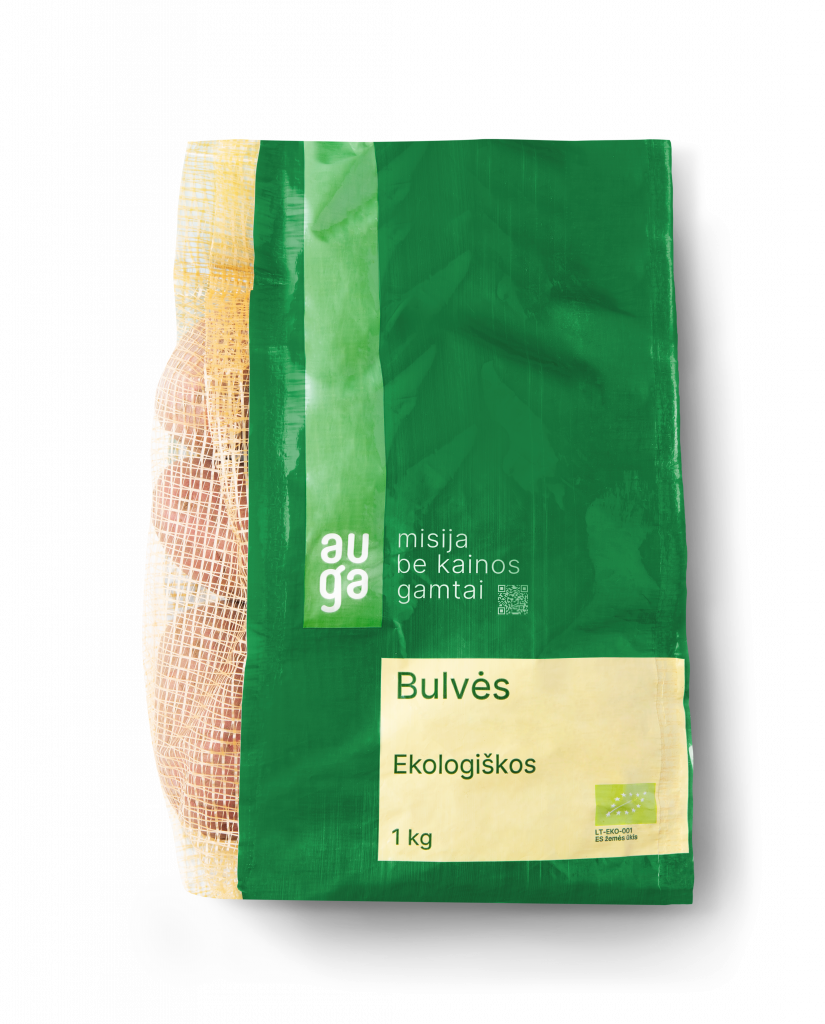
Grown on AUGA organic farms, carefully selected and packed in the AUGA factory.
Find out moreBeetroots
organic, 500 g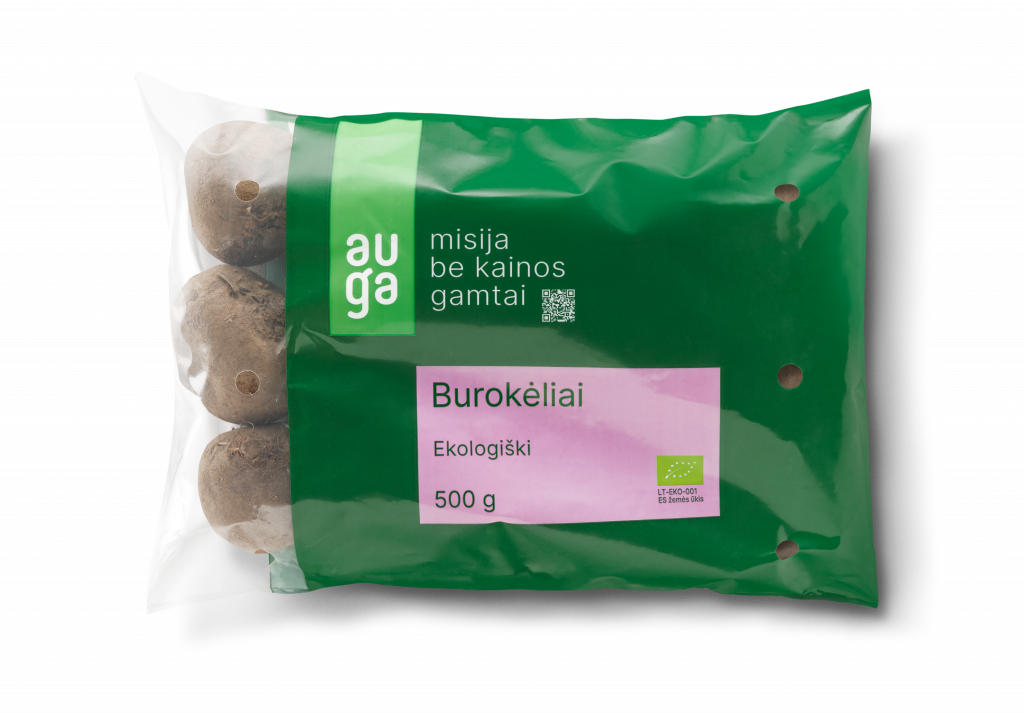
Grown on AUGA organic farms, carefully selected and packed in the AUGA factory.
Find out more

